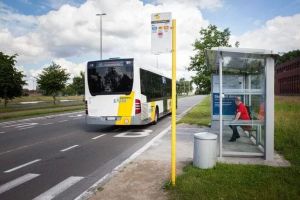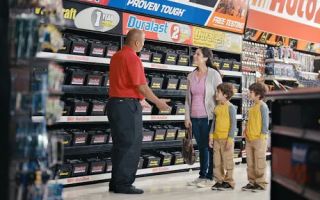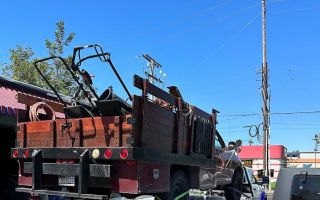What to Do When You Run Out of Fuel on the Highway
Running out of fuel on the highway is a situation no driver wants to face. It can happen to the best of us, whether it's due to misjudging the fuel gauge or underestimating how much fuel we have left. While it’s certainly inconvenient and stressful, knowing how to handle the situation can make a huge difference in how quickly and safely you get back on the road. In this article, we will walk through what to do when you run out of fuel on the highway and how to handle the situation efficiently.

Fuel 4
720 Tonnelle Ave, Jersey City, NJ 07307, USA
1. Stay Calm and Assess the Situation
The first and most important thing to do is stay calm. Panicking won’t help and can actually make the situation worse. Take a deep breath and assess the circumstances.

Nearest gas station
353 Smithtown Blvd, Ronkonkoma, NY 11779, USA
1.1 Check the Location of Your Vehicle
First, note your vehicle’s location. Are you on a busy highway, or have you pulled off to the side? Is it a high-traffic area, or are there fewer vehicles on the road? If you are in a busy area with lots of cars, your safety is the top priority. Make sure your vehicle is as far off the road as possible to avoid being hit by passing traffic.
1.2 Turn on Your Hazard Lights
Once you've assessed your situation, immediately turn on your hazard lights to alert other drivers. This will make your car visible and reduce the likelihood of an accident. If it’s dark or visibility is low, using reflective triangles or road flares (if available) can provide additional warning to other drivers.
2. Determine Your Options for Getting Fuel
Once you've ensured your safety, it's time to figure out how to get some fuel. You generally have three options: get help from a roadside assistance service, walk to a nearby gas station, or call for a tow truck. Let’s explore each of these in more detail.
2.1 Call a Roadside Assistance Service
If you have roadside assistance through your car insurance or a membership service like AAA, now is the time to call. Many of these services will send a professional to bring you a few gallons of gas to get you back on the road. Be sure to have your location details ready so they can find you quickly.
2.2 Walk to the Nearest Gas Station
If you’re in a safer area and it’s not too far to the nearest gas station, walking to fill up a gas container could be a viable option. However, make sure you have a container designed for fuel (do not use random containers as they can be unsafe). Additionally, keep your personal safety in mind—if it’s dark, rainy, or the area seems unsafe, it may be best to wait for help.
2.3 Call a Tow Truck
If neither of the above options is feasible or if you're not comfortable walking or waiting for roadside assistance, calling a tow truck is always an option. Tow trucks can take your vehicle to a nearby gas station so you can fill up and get back on the road.
3. Preventative Measures: How to Avoid Running Out of Fuel
The best way to avoid running out of fuel is, of course, to prevent it from happening in the first place. Let’s look at some simple strategies to ensure you never find yourself stranded on the side of the road.
3.1 Keep an Eye on Your Fuel Gauge
Regularly check your fuel gauge, especially when driving long distances or in areas where gas stations may be far apart. If you see that you’re getting low on fuel, plan to stop at the next gas station, even if you’re not entirely out. As a general rule, never let your fuel gauge drop below a quarter tank.
3.2 Use a Fuel Reminder App
There are plenty of apps available that can remind you when you’re getting low on fuel. These apps can help you plan your stops before it becomes an issue. Some apps even track gas prices, so you can also make sure you’re filling up at the cheapest station in the area.
3.3 Know Your Vehicle’s Fuel Efficiency
Understanding your vehicle’s fuel efficiency can help you estimate how far you can go on a full tank. Keep track of your driving habits, and use this knowledge to gauge when you might need to stop for gas. For example, highway driving typically uses less fuel than city driving, so knowing the difference can help you plan ahead.
4. How to Handle a Fuel Emergency: A Personal Story
Let’s take a moment to consider a real-life example. A few years ago, I was on a road trip and found myself running low on fuel. I had been so focused on reaching my destination that I didn’t pay attention to the fuel gauge. Suddenly, the car slowed down, and I realized that I was out of gas on a highway far from the nearest gas station. At first, I panicked. But then I took a deep breath, checked my surroundings, and assessed my options. I called roadside assistance, and within 30 minutes, help arrived. The experience taught me the importance of always planning for fuel stops and staying calm in stressful situations. It was a reminder that preparedness is key to avoiding such an inconvenient situation.
5. Conclusion: Staying Safe and Prepared
Running out of fuel on the highway can be a frustrating experience, but with the right steps, you can handle it safely and efficiently. Always ensure your safety first, whether it’s by moving your vehicle to a safe area or using warning signals to alert others. Then, determine your options for obtaining fuel, such as calling roadside assistance, walking to a nearby gas station, or requesting a tow truck. Remember that prevention is key—regularly check your fuel gauge and plan ahead to avoid running low on gas.
If you ever find yourself in need of help, don’t hesitate to contact professionals. Whether you’re stranded due to a fuel emergency or any other roadside issue, services like Rescue & Towing can provide you with the help you need to get back on the road quickly and safely.
SEO Title: What to Do When You Run Out of Fuel on the Highway SEO Keywords: run out of fuel on the highway, fuel emergency, roadside assistance, towing services, car breakdown, car fuel tips SEO Description: Running out of fuel on the highway? Learn what steps to take in case of a fuel emergency, including calling for roadside assistance, walking to a gas station, and how to avoid this situation in the future.



























